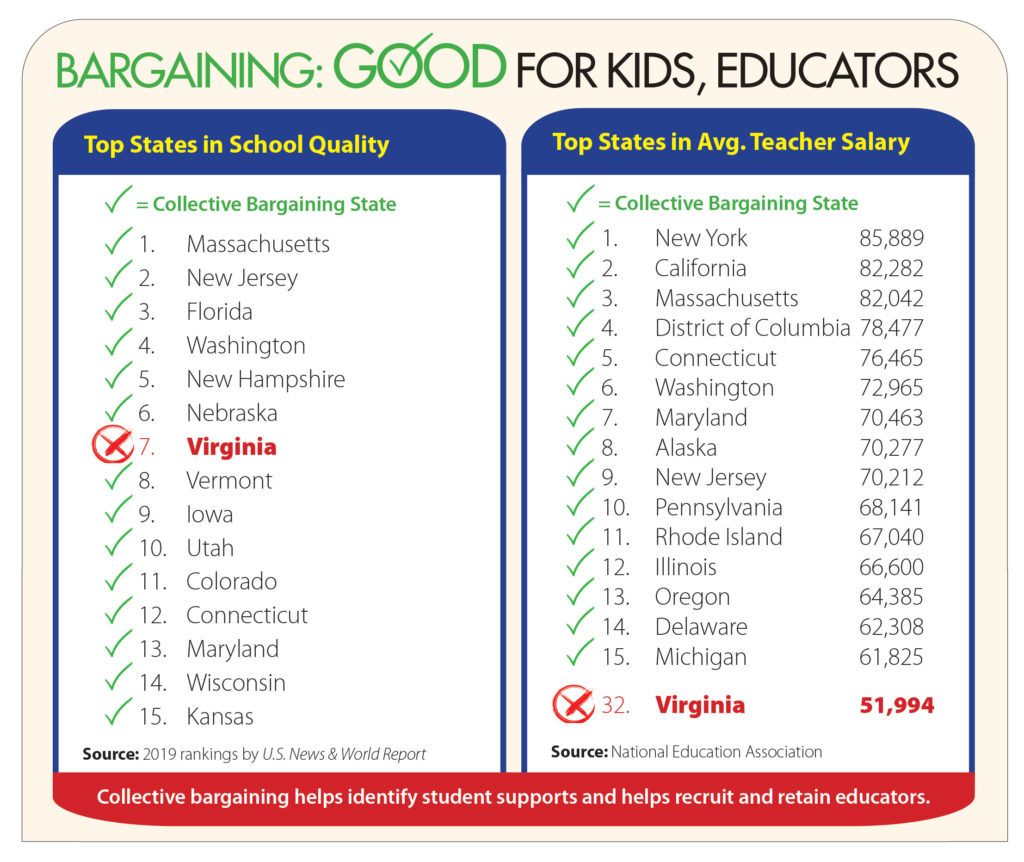The VEA helped overturn our state’s prohibition of contract negotiations for public education employees in the 2020 General Assembly, a huge win for educators and students in the commonwealth. With the dawn of a new era in Virginia political leadership, school and other public employees once again have the right to bargain their contracts, and the Union was a big part of making that happen.
Negotiating contracts for educators is good for everyone, says VEA President Dr. James J. Fedderman, who points to three important facts to back that up:
Negotiations ensure that educators’ unique perspectives and input are brought to the table. “We’re the ones working in the schools every day and we see what’s going on with instruction,” Fedderman says. Before collective negotiations for public employees was banned in Virginia, local associations had bargained such student-centric items as additional reading, art, and music teachers; the setting of school calendars; fairer discipline policies; and more.
“In states where public educators have negotiated their contracts,” he says, “a wide range of topics have been brought to the table. We’ve seen improvements in class sizes, resources available for students, and safety issues all made possible through negotiation.”
Negotiated contracts help recruit and retain top-notch educators. It’s no secret that inadequate pay and reduced benefits lead to increased turnover, and increased turnover isn’t good for students. “A chance to sit down with school administrators and negotiate our contracts is the best way we have to ensure that teachers and other educators are paid the kind of professional salary they deserve,” says Fedderman.
Collective negotiations offer a way to meet local school challenges. Turnover isn’t just about pay—it’s also (and sometimes even more so) about working conditions. “If educators are facing poor working conditions, then students are facing poor learning conditions, and those are both big factors in why so many good teachers choose to leave the profession,” says Fedderman. “In collective negotiations, they would have a meaningful voice in identifying and solving problems.”
Learn more in ‘Frequently Asked Questions,’ below.

According to a poll conducted by Virginia Commonwealth University, 66% of Virginians say public schools do not have enough funding to meet their needs.
Learn More